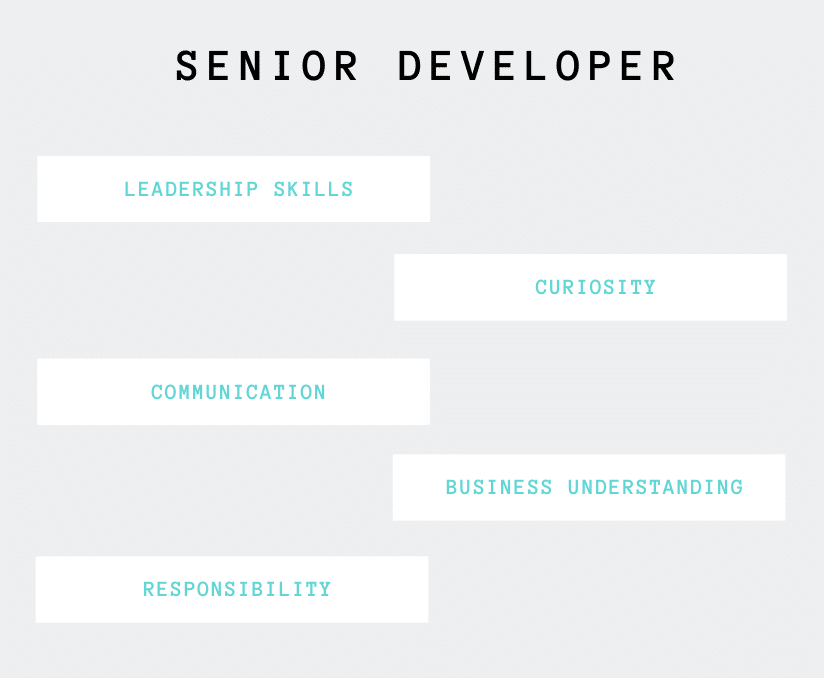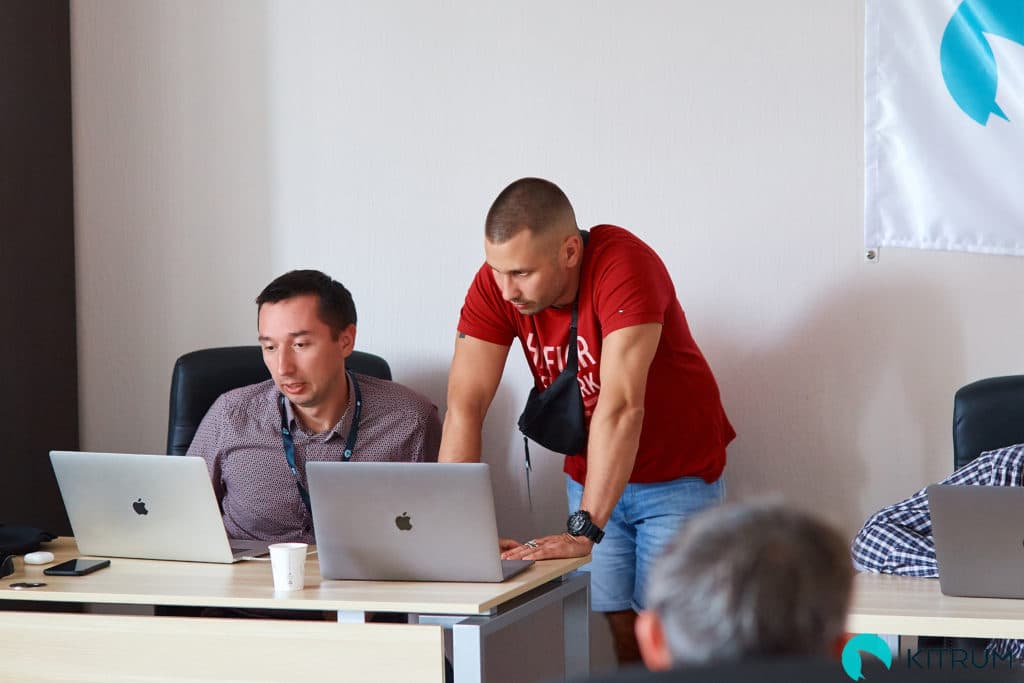How To Conduct Interview For Senior Software Developers
Discover the right questions to ask to hit the nail on the head and facilitate your search for a worthy senior software developer to join your team.
Today, many organizations find themselves lacking real senior software developers that fit into the workforce and workspace properly. A supposed senior software developer with ten years of experience (which is often considered good experience) who is terrible at communication, for example, could get hired to work in an organization solely because they have been writing codes and developing software for ten whole years.
However, two months down the line, because the interviewer failed to check such an important factor as communication, this highly experienced senior software developer is not allowing his team to reach maximum productivity or meet deadlines because he or she is not a good communicator.
As already stated, a senior developer is not just a software engineer with many years under their belt. As the saying goes, to whom much is given, much is expected. Much more than experience is required to be a senior software engineer.
You may be wondering, what exactly does it mean to be a senior software developer? Is it simply having a collection of skills or gathering multiple qualifications? Is it about being knowledgeable in several coding languages? How does one spot a senior developer?
What exactly does it mean to be a senior software developer?
Being a senior software developer means being a dedicated one. It means meeting every new project with impeccable enthusiasm and unwavering dedication. The kind of dedication that inspires the rest of the team to go hard when everyone else is lagging. It means possessing a level of selflessness that constantly reminds you that you’re being looked up to (and even copied) by many people. It means possessing and maintaining a substantial level of professionalism worthy of emulation. It means sacrificing daily and making the best of every project that lands on your desk first.
A senior software developer is also knowledgeable. Ensuring the quality of a product and its output is a duty that rests largely on the senior software engineer. The level of skill and knowledge put into a project will greatly determine how good that product will be. Being a senior software developer means having the skill and knowledge to carry out all the procedures involved in software development.
It means consistent learning. Learning never ends, and the ever-changing intricate world of software development certainly ensures that new knowledge is almost always required.Since quality assurance is very much determined by the senior software developer and his or her team, what skills must a senior software developer possess?
Skills a senior software developer must have
Here are some developer skills recruiters should look out for.
Adaptability
Adaptability is one must-have skill for a senior software developer. When a senior developer is newly hired, will they have difficulty adjusting to the new workplace? How fast can they settle into this new work environment? Can they easily adapt? Leaving behind an old team and taking up a new one requires absolute adaptability if the goal is to be effective.
When a project is concluded, and a new one arrives, the quickness with which the senior developer adapts to this new project will influence the adaptability rates of other members of the team. Being the head of the entire development effort requires a great deal of adaptability.
Communication
Communication is an essential skill to have. Stakeholders and other superiors must always be kept abreast of the situation. What is lacking? What is available in excess? How much progress has been made in a project? Every report sent must have the right kind and amount of information in it. Good communication determines the level of understanding that is achieved amongst team members. Using the wrong tone, for example, could result in miscommunication and sometimes disagreements.
Bad communication can affect the pace of work done. When the wrong information is sent, received, and followed through, it could take a while before the software team or even the senior developer realizes that work is being done using the wrong information. In cases like these, parts of the work done have to be erased or started from scratch. Resulting in time loss and avoidable waste of resources and efforts.
Good Listening Skills
Another skill a senior developer has to have is good listening. Without listening, understanding cannot be guaranteed, and without understanding, communication is already flawed. As hard as it may seem sometimes to say the right thing, what is harder is knowing when to listen. Sometimes, it is more important to listen than it is to talk. A senior software developer will have to listen to team members and stakeholders to ensure that the right information is gotten and dispensed.
It’s crucial for senior software developers to understand that even they don’t know everything. Learning is not restricted to any particular place or time, or individual. Nor does anyone have a monopoly of knowledge. Having a good ear and a mind to listen to other people’s opinions, ideas and suggestions help to improve the quality of work done and overall output.
Leadership Skills
A senior software developer (and all senior members of the development team) must be a good leader. A good leader knows his or her team members’ respective strengths and weaknesses and can delegate based on this information.
A good leader is empathic. Treating colleagues (junior and senior colleagues alike) with empathy and respect is a trait that sparks inspiration in others and facilitates trust amongst colleagues.
Problem-Solving Skills
A senior software developer must be able to think on their feet and be a good problem-solver. Having the ability to effectively coordinate oneself, other team members, the task at hand and adequately solve every issue that may arise is essential for every senior developer.

Tech stack is not enough: How to understand cultural proximity? Is this your person?
It is not enough when the skill and qualification boxes are ticked. An interviewer must determine a software engineer’s work ethic to be right for your organization before that final decision is made. A skilled and qualified senior developer who cringes at the thought of working overtime to meet a deadline may not be a good fit for your company.
Suppose a qualified candidate possesses certain factors that could stand in the way of maximum productivity (like pursuing a master’s degree or nursing). In that case, they may not be a good fit for your company as they will be overworked and underproductive.
At this point, after the candidate is confirmed to have the technical skills and necessary certifications, more specific questions must be asked. These questions will help determine what it will be like to have that candidate working in your company.
Some of them include;
- How do they coordinate and interact with stakeholders and team mates?
When there is a dispute among junior colleagues, do they immediately step into their leadership shoes and amicably dissolve the dispute, or do they waste time playing the blame game?
- What steps will they take to solve a long-standing issue of communication, for instance?
An interviewer also needs to know what problem-solving methods a prospective hire will employ in solving potential problems that could arise during their stay in the company and the course of software development.
Let us assume that the hiring software company only uses manual testing, which is time-consuming and makes it harder to meet deadlines.
- How will a senior developer who is also a new hire convince stakeholders that automated testing is the way to go?
For example, they could do a PowerPoint presentation, showing stakeholders how much better, faster, and more reliable automated testing is. Suppose the presentation is good enough and management buys into the idea of using automated testing instead of manual testing. In that case, the opportunity for work to be done at a much faster pace is now presented to the development team and the company as a whole.
This, however, ultimately boils down to how good a senior software developer is at selling new and better ideas to management.
Additionally, you should ask candidates about their past experiences, mistakes, and lessons learned. Knowing what they did wrong and how to avoid a repeat is vital. So is learning from past mistakes and using that knowledge and experience to mitigate issues that may surface or resurface.
When candidates talk about past experiences, they get more comfortable as they try to paint a picture of what went wrong and what they could have done differently. This exercise of talking about past errors and failures allows the interviewer to assess the candidate better.
An example of a good question to ask at this point is, “Tell us about two times in your professional career when you failed?”
How to understand if your developer will be a good lead?
Interviewers should endeavor to ask candidates specific leadership and management questions. A Wall Street Journal survey of 7,200 adults showed that about %50 of them had left a job at some point because of their managers.
Here are some relevant questions to ask.
How regularly do you schedule meetings with your team members?
As regular meetings are crucial to determine when to increase momentum and maintain rhythm, it is essential to ask candidates how often team meetings will be held.
Additionally, when meetings are held often enough, managers and team leads can get useful feedback.
A Survey showed that teams whose managers got feedback showed %12.5 more productive than teams whose managers did not receive feedback.
Regular meetings are helpful to keep track of progress made and alter the direction of the workflow when necessary.
Another significant thing regular meetings help achieve is a stronger bond between team members. Although regular meetings are critical, it is essential to strike and maintain a delicate balance. When meetings are held too frequently or last too long, the goal is defeated.
A study by Atlassian.com showed that %45 of the average meeting goer felt overwhelmed by the number of meetings they had to attend. The same study showed a $37 billion salary cost of unnecessary meetings in the US.
If that week’s growth meeting has already been held, it may be best to send an email to convey any additional information.
What metrics do you use to monitor your team’s performance?
A good team leader must keep track of team members’ individual and collective performance. Effective teamwork drives high performance, which in turn delivers success. But how does a project manager or team lead guarantee effective performance?
Some metrics to keep in mind are;
- Attendance
- Team spirit
- Initiatives
- Commitment
- High performance
What are the benefits and advantages of working in an Agile environment?
This question will help the interviewer understand how familiar a candidate is with modern technologies and software.
Below are more benefits of working in an Agile environment.
- Low risk
- Increased team collaboration
- Reduced cost of office maintenance
- Employee satisfaction
- Work-life balance.

Which tests are most important before deploying a new system or feature?
Testing is essential to ensure that software functions properly after it is first built or after a change has been carried out. A good senior software developer knows the necessary testing a software should undergo before, during, and after production.
The three major types of testing are functional, non-functional, and maintenance testing.
What tools and techniques do you use when reviewing someone else’s code?
An effective code review finds bugs and errors early in the development process. It also ensures that a new code meets set company standards. This question is a way to ensure that codes reviewed by the candidate will be better than satisfactory.
Here are ten useful code reviewing tools
- GitHub
- Visual Expert
- Review Board
- CodeBeat
- CodeScene
- CodeClimate
- Phabricator
- DeepSource
- Gerrit
- Codacy
Let’s get down to business: how to check strong skills, and does your developer know his/her stack?
Here’s how you can test a candidate’s strong skills.
Check them on paired programming
Paired programming is an Agile software development method where two, often equally skilled software developers work in a single workroom. The two programmers work interchangeably; one as a driver (writes the codes) and the other as a navigator (reviews the codes written). This exercise is a good way to measure how a candidate codes.
Assess them on how they manage security concerns, for example, a fintech application
Doing so paints a picture of the kind of application security to expect from the candidate. It helps the interviewer gauge whether or not the candidate can protect the application and its users from security concerns. Some major security challenges faced by FinTech applications today are;
- Malware infection
- Spear-phishing
- Data sharing
- Deep fakes
- Cloud-based security risks
Test them on class refactoring
Refactoring is done to enhance the internal framework of a class without altering its external actions. It is often carried out when a class is too bulky or performs too many tasks and needs to be reorganized.
Here, a candidate is presented with a class to dismantle and reorganize into various groups and functions. The candidate’s level of expertise will determine how well the class will respond afterward.
See which Performance analysis tools and graphs they’re familiar with
It is necessary to ask candidates what performance analysis tools and graphs they would use to guarantee high performance given set architectural goals.
Engineers use performance analysis tools to tune a software’s behaviors to suit a particular architecture.
Additionally, the interviewer should ask the candidate to make graphs to monitor system health and performance. A good senior developer knows the crucial role that monitoring plays in ensuring high performance and scalability and should have the skill to build graphs that adequately monitor all running tasks in an application or software.
This step is essential to test a candidate’s system monitoring expertise, foresight, and ability to take the initiative.
Find out which data tables they feel are best for managing inventory systems
Finally, ensure you find out about the data tables with which the candidate manages inventory. A specific set of tables manages every given inventory. A worthy hire with the right information (e.g., type of inventory) should know how to create suitable data tables.
Conclusion
Interviews can be tedious, but a tedious interview still does not guarantee that you have found the right candidate. Knowing the right questions to ask could prove harder than it seems. Organizations should always have an understanding of the necessary knowledge and expertise a senior software developer needs to lead your team of developers.



